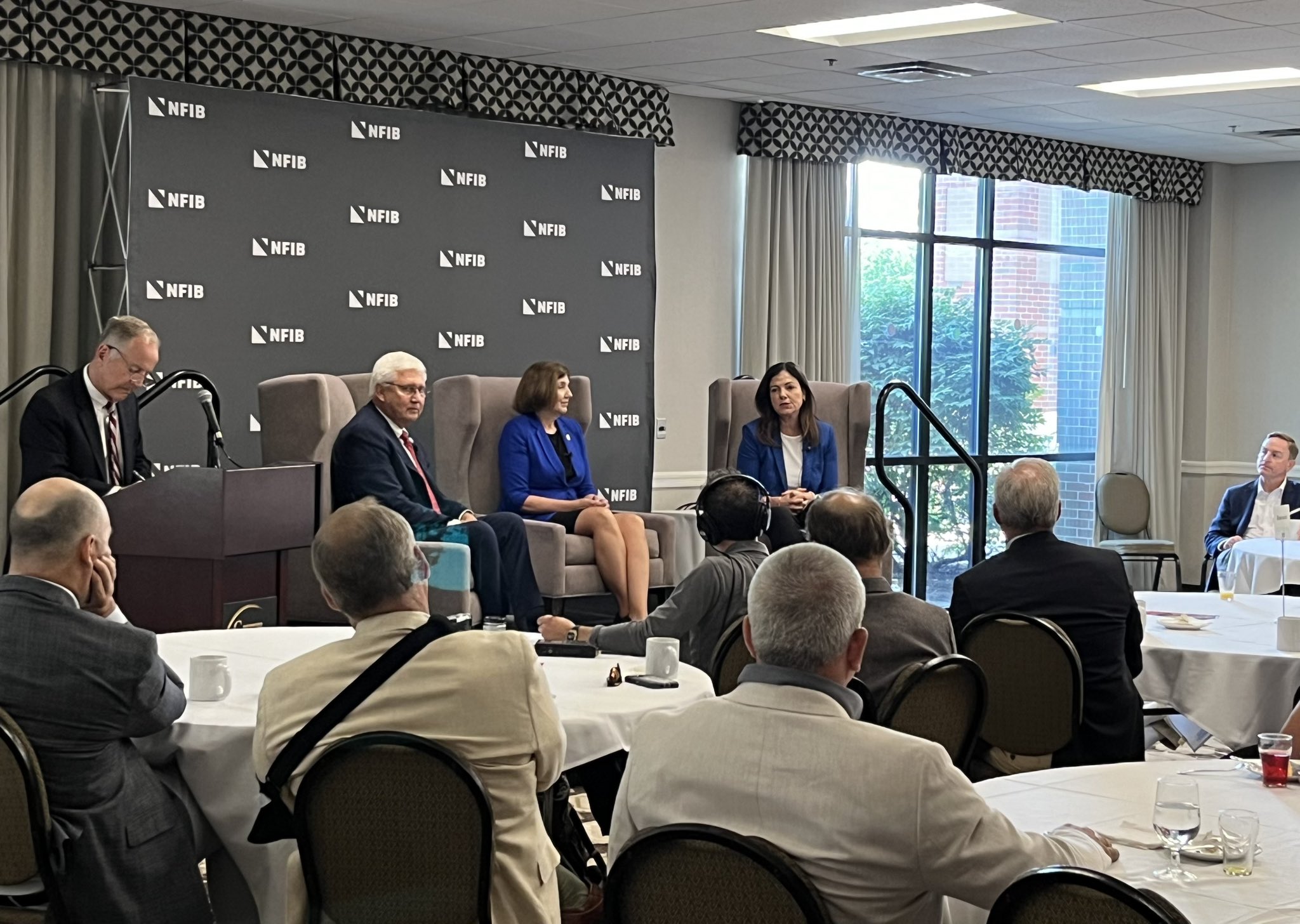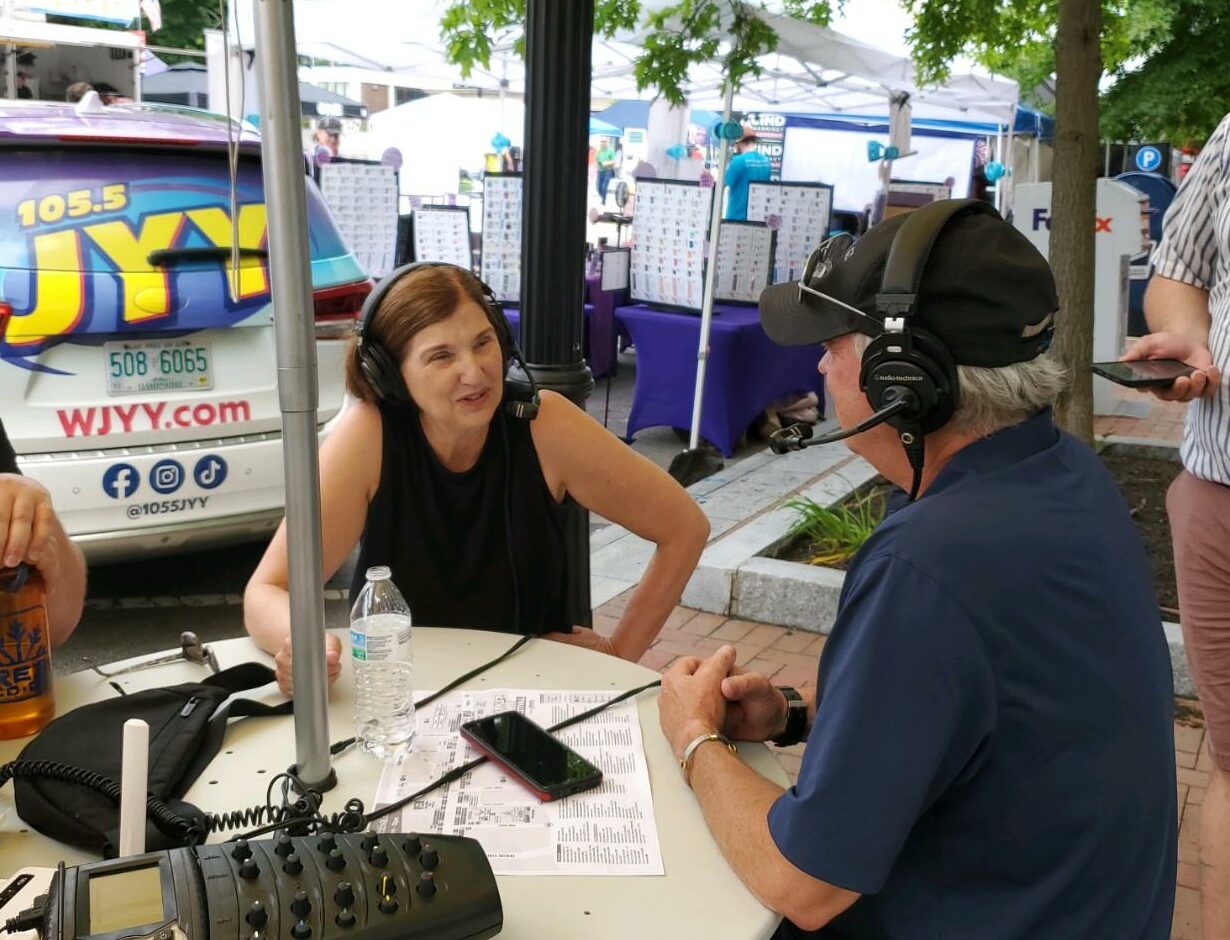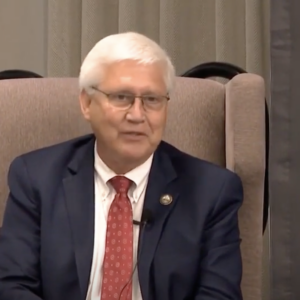Taxes, housing, and energy costs were the hottest topics when three of the four major candidates for governor sat down at a small business forum with the National Federation of Independent Business (NFIB) in Concord on Thursday.
Both Republicans, former state Senate President Chuck Morse and former U.S. Sen. Kelly Ayotte, participated, as did Democratic Executive Councilor Cinde Warmington.
Former Manchester Mayor Joyce Craig, who presents herself as the frontrunner in the Democratic primary, was the lone no-show Thursday morning. And it was noted.

“There is a top candidate on the Democrat side who is not here today,” Ayotte pointed out during her opening remarks. Later in the event, Ayotte called out Craig’s absence again.
“I think that small businesses are the engine. I want you to know that I will always show up for you. I will always listen to you,” Ayotte said.
Craig declined to respond to repeated requests for comment about skipping the event.
Warmington didn’t mention Craig, but in a radio interview with Jack Heath on Main Street in Concord after the forum, she said it’s important for leaders to speak to people with whom they disagree.
“From my perspective, you’ve got to talk to people, even if you have a difference of opinion,” Warmington said. “I talk to people on the Executive Council and, as I say, if there’s an inch of common ground between us, I will find it, and we will build from there. And that’s how you get things done in Concord.”

Democratic candidate for governor, Executive Councilor Cinde Warmington, speaks to radio host Jack Heath in downtown Concord, June 20, 2024
The forum was a civil affair, though there were some policy disagreements among the candidates. While all three said they would oppose a statewide sales or income tax, for example, there were differences on energy policy. Warmington supports government action to install more electric vehicle charging stations, while the two Republicans would leave it to the free market.
Ayotte and Morse also stated clearly they oppose a ban on natural gas and they would not support putting New Hampshire in an updated version of the so-called “Transportation Climate Initiative (TCI),” a regional carbon-credit scheme that would raise gasoline prices.
Warmington was more nuanced.
On the TCI question, Warmington said she needed more information before she could answer.
Asked if she would support a ban on natural gas, which Granite Staters use both the generate electricity and heat their homes, Warmington hedged.
“We are not going to ban natural gas, but obviously, we have a transition to work with,” she said. “We need to do away with fossil fuels and into a clean energy economy, and yes, we will work with the private sector to make that happen.”
In fact, Warmington’s CLEAN Energy Economy plan she released earlier this year calls for net-zero carbon emissions by 2040, a goal that would require an end to the use of natural gas, not to mention gasoline-powered cars and home heating oil.
And while Warmington criticized current leadership for New Hampshire being “the only state that is not really at the table talking about wind power,” Morse denounced the idea.
“The biggest disgrace in government is when you follow the money,” Morse said, referring to offshore leasing and the subsidizing of wind farms. “They’re going to spend billions lining people’s pockets and getting nothing done.”
All three candidates agreed on the need to build more housing in the Granite State.
Morse said he recently visited an almost-completed housing project that’s still awaiting a driveway permit.
“It’s taken over a year to make that happen,” he said. “We can’t let that happen in our state. We’re too great for that.”
One potential solution proposed by current Gov. Chris Sununu is a streamlined electronic permitting process. Ayotte said she’s on board.
“We need an efficient process where you can get an answer from all the alphabet soup agencies,” she said.
Warmington said New Hampshire needs to “change the narrative” around housing.
“Our communities need to recognize the community that builds the housing first wins. That increases your tax base, that attracts people to your community, it attracts your workers to your businesses. That’s how you build a vibrant economy.”
A poll released by the University of New Hampshire Survey Center just hours after the forum showed the candidates were on the same track as the voters. The top concern for Granite State voters is housing, higher than the next four issues combined.
The same poll also found Ayotte has the highest name ID and best net favorability number of the four candidates, at 53 percent favorable and 20 percent unfavorable.
Morse is at 24 to 19 percent, Craig is 38 to 8 percent and Warmington is at 35 to 8 percent. More worrying for Craig and Warmington is how many voters still don’t know enough about the candidate to have an opinion. For Craig, it was 32 percent of respondents, and for Warmington it was 47 percent.
Campaign professionals say with numbers like those, Craig is taking a risk by refusing to participate in public events or making her case in media interviews.
Ayotte spokesman John Corbett took it a step further. “If Joyce Craig can’t be bothered to join her fellow candidates for a productive, civil discussion on the issues facing New Hampshire small business owners, she can’t be trusted to show up for them as governor.”
NFIB State Director Bruce Berke said the NFIB “was pleased to host the first joint appearance of this year’s prime candidates for governor. The candidates addressed all of the questions asked and did so with clear, informative answers. New Hampshire is fortunate to have three strong and informed candidates seeking to be our next governor.”





